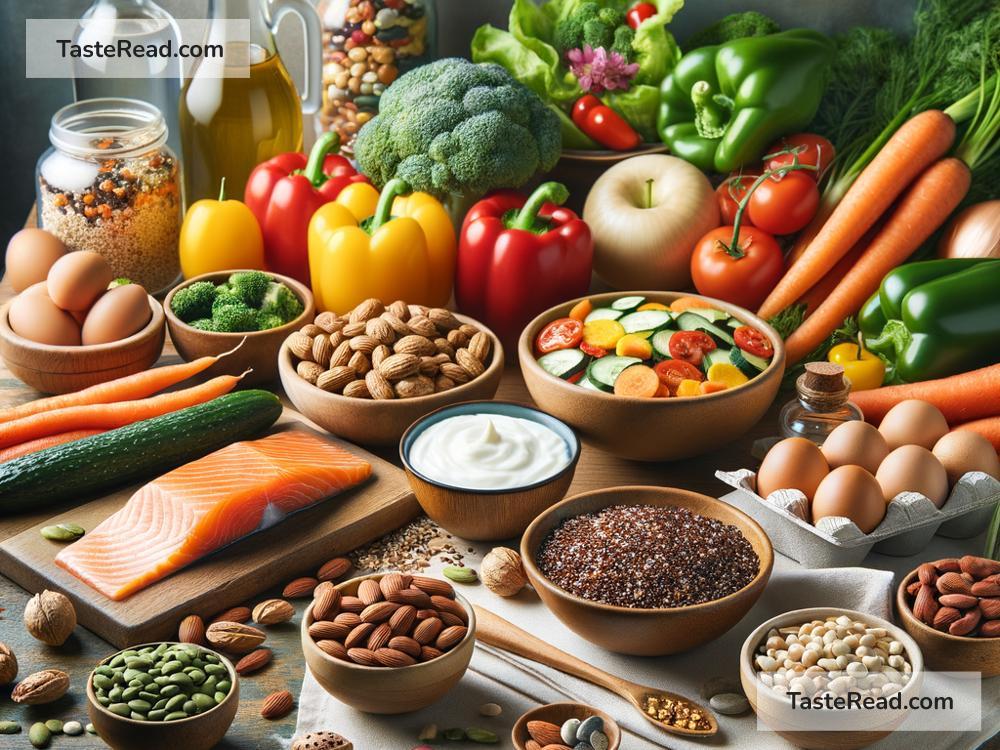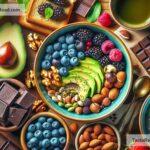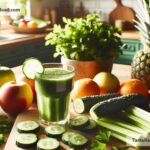Foods for Reducing Protein Degradation: A Guide to Supporting Muscle Health
Protein is crucial for our bodies. It plays a big role in building and repairing tissues, producing enzymes and hormones, and creating muscle. However, under certain circumstances, protein degradation (the breakdown of protein in our bodies) can occur, leading to muscle loss and weakness. If you’re someone who wants to preserve muscle health, especially during workouts, illnesses, or aging, focusing on the right foods can help. In this blog, we’ll explore simple, nutritious foods that can reduce protein degradation and support your overall well-being.
What Is Protein Degradation?
Protein degradation happens when the proteins in your body break down into smaller components, such as amino acids. This is a natural process that helps your body recycle proteins and maintain balance. However, excessive protein degradation can be harmful, especially if you’re trying to build muscle or recover from sickness.
To counteract this, your body needs energy and nutrients to preserve balance—this is where food comes in. Eating a balanced diet and focusing on specific muscle-supporting foods can help reduce muscle loss and improve recovery.
Best Foods to Reduce Protein Degradation
Here are some of the top foods known for their ability to support muscle health and slow protein breakdown:
1. Eggs – A Protein Powerhouse
Eggs are often called “nature’s perfect food” because they are packed with high-quality protein and essential amino acids. Amino acids are the building blocks of protein, and eggs contain a rich amount of leucine, which is especially important for preventing protein degradation.
Tip: Scramble eggs for breakfast, or add boiled eggs to your salad for an extra burst of protein.
2. Chicken Breast and Lean Meats
Chicken breast and other types of lean meat are excellent sources of complete protein. They are rich in essential amino acids that promote muscle synthesis and stop protein breakdown. Lean meats also have less fat, making them a healthy choice for people focusing on fitness or weight control.
Tip: Grill or bake chicken breast for a tasty addition to your lunch or dinner while keeping it healthy.
3. Fish – Rich in Omega-3 Fatty Acids
Fish, particularly salmon, mackerel, and tuna, are not only high in protein but also contain omega-3 fatty acids. Omega-3s are known to reduce inflammation in the body and protect against excessive protein degradation during prolonged illnesses or periods of stress.
Tip: Add baked salmon or grilled tuna to your meals for a healthy boost of protein and omega-3s.
4. Greek Yogurt – Protein and Probiotics
Greek yogurt is an excellent dairy product loaded with protein and probiotics. It contains casein, a slow-digesting protein that delivers amino acids to your body over several hours. This makes it ideal for reducing protein degradation, especially overnight when the body is repairing itself.
Tip: Enjoy a bowl of Greek yogurt with fresh fruit and nuts for a delicious snack.
5. Nuts and Seeds – Healthy Fats and Protein
Nuts like almonds, walnuts, and seeds like chia and flaxseeds are rich in plant-based protein, omega-3 fatty acids, and antioxidants. They not only help replenish your protein reserves but also combat inflammation, which can lead to muscle loss.
Tip: Sprinkle chia seeds over oatmeal or snack on a handful of almonds for a quick energy boost.
6. Quinoa – A Protein-Rich Grain
Quinoa is a gluten-free grain that contains all nine essential amino acids, making it one of the best plant-based sources of complete protein. It’s also rich in fiber and other nutrients that support your body’s ability to repair and maintain muscle.
Tip: Use quinoa as a base for salads or pair it with stir-fried vegetables.
7. Cottage Cheese – Slow-Digesting Protein
Like Greek yogurt, cottage cheese is rich in casein protein, which slowly digests and helps deliver amino acids to your body over time. This makes it a great food choice for reducing protein degradation while you sleep.
Tip: Combine cottage cheese with fruit or eat it plain as a high-protein snack before bed.
8. Beans and Lentils – Plant-Based Protein
Beans and lentils are excellent sources of protein and fiber. They help maintain muscle health and prevent protein degradation while providing long-lasting energy due to their slow-digesting carbohydrates.
Tip: Add lentils to soups or make a bean-based salad for a filling meal.
9. Leafy Greens – Supporting Overall Health
While greens like spinach, kale, and broccoli are not high in protein, they contain vitamins and minerals that promote overall muscle function and repair. Magnesium and Vitamin C, found in leafy greens, are especially critical for supporting protein synthesis and reducing degradation.
Tip: Blend spinach into smoothies or stir-fry kale with olive oil for a healthy side dish.
Important Reminders
- Stay Hydrated: Water is just as important as food for maintaining muscle health and proper protein utilization.
- Balance Your Diet: Eating a variety of nutrient-rich foods helps ensure your body gets what it needs to function optimally.
- Timing Matters: Consuming protein-rich foods after exercise or before bed can maximize muscle repair and reduce protein degradation.
Conclusion
Your diet plays a significant role in reducing protein degradation and maintaining muscle health. By including high-quality protein sources like eggs, lean meats, fish, Greek yogurt, and plant-based options like quinoa and beans, you’ll be providing your body with the essential nutrients it needs to stay strong. Pair these foods with hydration, adequate rest, and an active lifestyle to ensure your muscles remain healthy and functional.
Eating right isn’t just about preventing protein degradation—it’s also about building a resilient body that can thrive in the long run. So, enjoy your meals and fuel your body wisely!


